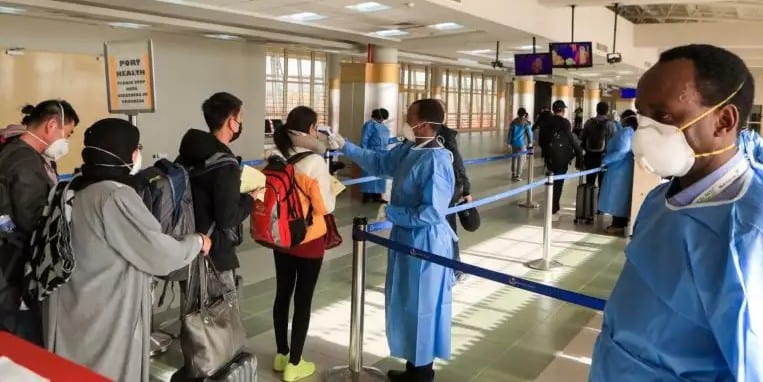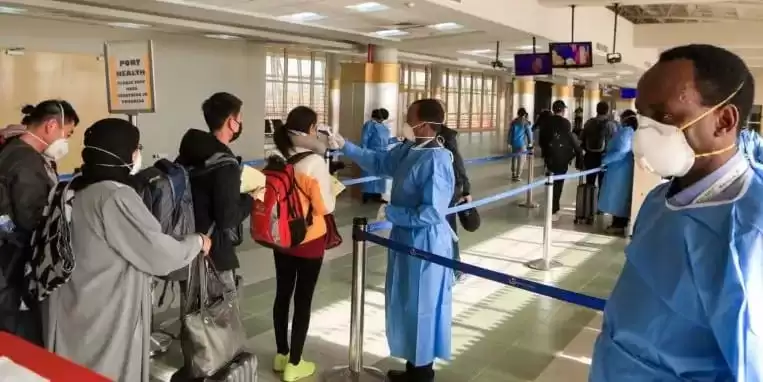

Last updated on September 11th, 2021 at 03:04 pm
The rapidly spreading coronavirus has wreaked havoc across much of the developed world, yet not a single case has been confirmed so far in Africa – the continent that’s least equipped to deal with the epidemic. Health officials are still bracing themselves for the worst.
Two-way travel between Africa and China, the epicentre of the respiratory illness that’s infected more than 34,000 people since late December, has surged over recent years as they forged closer financial and political ties, raising the region’s risk of exposure.
About 20 African nations have already issued alerts of possible cases, and the World Health Organisation (WHO) has expressed concern that a widespread outbreak would overwhelm their fragile health systems.
“We are not waiting for an outbreak,” said Dr Amadou Sall, a director at Institut Pasteur de Dakar, a bio-medical research center in Senegal. “We’re anticipating it.”
Thirteen nations, including Nigeria, South Africa, Kenya and the Democratic Republic of the Congo, are seen as especially at risk and have been identified by the WHO as priority zones for containing the spread of the virus.
While the WHO declared coronavirus a public health emergency last month, it hasn’t recommended restrictions on trade or travel to and from China.
Even if Africa doesn’t suffer an epidemic, it faces risks from an economic slowdown in China, its most important trading partner. Two-way trade between the continent and the Asian nation totalled more than US$204 billion (S$283.51 billion) in 2018, data from the China-Africa Research Initiative at Johns Hopkins University School of Advanced International Studies shows.
A number of African governments have instituted measures aimed at detecting coronavirus cases, halting their spread and treating those who are infected. Some are better equipped than others, having had recent experience in tackling other epidemics like Ebola and cholera.
A lot of progress has been made in dealing with highly pathogenic viruses since the Ebola outbreak, with many Africans having been trained to deal with them, according to Dr Sall. Laboratories and research centres have also been built, while new surveillance methods have been introduced, he said.
An Ebola outbreak in the Democratic Republic of the Congo that began in 2018 has infected about 3,350 people and killed 2,210. About 70 per cent of countries in the region established isolation facilities in response, according to Mr Michel Yao, emergency operations programme manager at the WHO’s Regional Office for Africa.
Medical personnel in the DRC have also had to contend with a measles outbreak that’s claimed at least 6,000 lives since the start of last year, while those in Mozambique faced a surge in reported cholera cases after it was hit by a tropical cyclone.
South African President Cyril Ramaphosa defended his nation against claims of white discrimination made by tech magnate Elon Musk. After…
Hilton launched Signia by Hilton for its first appearance in Egypt and Africa through its hotel expansions. These hotels at…
UNICEF reported that, nearly 2900 people died of cholera across Eastern and Southern African countries while children suffer most greatly…
Enza, based in the United Arab Emirates, obtained $6.75 million in initial investment funding from Algebra Ventures and Quona Capital.…
US Secretary of State Marco Rubio ordered South African Ambassador Ebrahim Rasool to leave America by March 21 because he…
Early 2025 ends with IPL fever in India and cricket fans receive good news of an international schedule full of…
This website uses cookies.